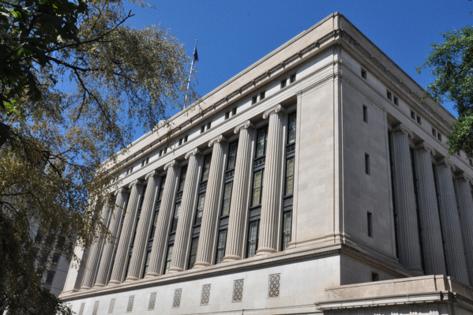Commentary: The Virginia Supreme Court must go further to eliminate DEI from the Virginia State Bar
Published in Op Eds
The Virginia State Bar is “an agency of the Supreme Court of Virginia” with an explicit mission: "(1) to protect the public, (2) to regulate the legal profession of Virginia, (3) to advance access to legal services, and (4) to assist in improving the legal profession and the judicial system.”
Why then has it engaged in activities antithetical to those goals and pushed problematic policies that advocate for treating people differently based on race?
While it’s problematic when any institution engages in these illegal and unconstitutional practices, it’s particularly troubling when courts or their agencies do so.
After all, how can Americans trust those same courts to protect and vindicate their rights when they are engaging in race-based discrimination themselves?
All the way back in 2010, the VSB started hosting a Diversity Conference, which increasingly focused on categorizing and treating individuals differently based on race and gender over its other “diverse” factors such as geography and political views.
By way of example, in 2022, the VSB Diversity Conference held a forum entitled “Diversity in the Legal Profession.” According to the VSB’s annual report, the “Forum provided participants with a robust slate of panelists focused on” topics such as “Implicit bias and how it affects the practice of law,” “Best practices and encouraging a culture of diversity—improving diversity in the legal profession through hiring and retention,” and “Racial reconciliation, civil rights and jury abuses in Virginia.”
For good measure, that same Forum contained a session on “Investing in ESG,” which refers to the practice of encouraging investors to invest not based on a company’s potential profitability, but on how well a company achieves left-leaning “Environmental, Social, and Governance” goals.
So imagine the outrage from certain left-leaning corners when the Virginia Supreme Court required that, “As of July 1, 2025, the VSB’s four conferences (Young Lawyers, Senior Lawyers, Diversity Conference, and the Conference of Local and Specialty Bar Associations) are now sections.” That matters because the Virginia Supreme Court made clear that “(t)hese new sections will be self-funded with voluntary section membership dues to retain and expand programming” instead of receiving annual appropriations from the VSB itself.
Shortly after that decision, a former member of the VSB’s Diversity Conference Board of Governors wrote a letter to the editor of Virginia Lawyers Weekly bemoaning the fact that the decision is “a setback for equity, inclusion, and access to justice in the Commonwealth.” And one heading in the article makes clear that it is the author’s view that the “decision undermines DEI.”
The Virginia Supreme Court’s position to require these conferences to become privately funded VSB sections is a good first step. But the Virginia Supreme Court must go further.
Is the average Virginian, unfamiliar with the VSB’s structure and funding sources, going to understand that VSB sections are privately funded? (It’s also worth diving into what indirect or overhead support the sections receive from the VSB). Or will members of the public quite understandably believe that such programming carries the imprimatur of the VSB?
In other words, if these sections continue to push divisive DEI policies, members of the public will likely attribute those polices to the VSB and the Virginia Supreme Court. And even if they are privately funded, they are still acting under the auspices and authority of the Virginia Supreme Court.
That’s why the Florida Supreme Court, for example, promulgated needed rule revisions to make sure that neither the Florida Bar nor any of its sections could host inappropriate programming pushing diversity, equity, and inclusion principles (DEI)—in other words programming where the government is treating people differently based on their race. After all, what does a person’s race have to do with how good of an admiralty or bankruptcy or any other type of lawyer the person might be?
So while the Virginia Supreme Court should be commended for taking this important first step, it should go further and affirmatively require the Virginia State Bar—as an arm of the Virginia Supreme Court—to treat everyone equally regardless of race and not promote, explicitly or implicitly, an ideology that undermines that message.
_____
Zack Smith is a Senior Legal Fellow and Manager, Supreme Court and Appellate Advocacy Program, The Heritage Foundation.
_____
©2025 Tribune Content Agency, LLC.
























































Comments